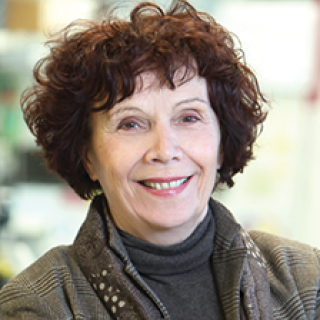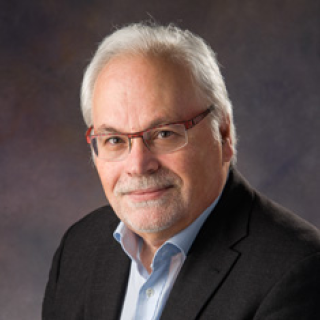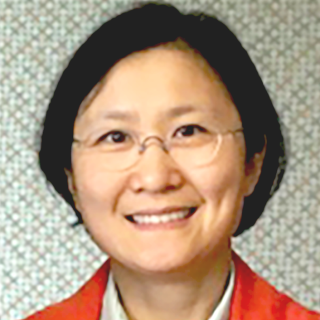Vaccine Branch
Information for Patients
Learn more about our clinical trials and the highly specialized care teams that lead them.
Vaccine Branch
About
Our Mission
Cancer and HIV are both chronic diseases that suppress and evade the immune system. By combining expertise in both cancer and retroviral vaccines, the Vaccine Branch aims to promote cross-fertilization of ideas and progress in both areas in a unique way that is not duplicated elsewhere. The Branch conducts a program of clinical and laboratory research designed to 1) elucidate basic mechanisms of immune response and molecular virology, and 2) apply these to the design and development of vaccines and immunotherapy for the prevention and treatment of cancer and AIDS, as well as viruses that cause cancer.
In particular, the Branch carries out studies on 1) the mechanisms of T lymphocyte activation and regulation, 2) cancer immunosurveillance, 3) mucosal immunity, 4) retroviral molecular biology and pathogenesis (including transcriptional and post-transcriptional regulation of retroviruses involved in causing cancer or AIDS), 5) regulation of cellular gene expression, 6) immune responses to retroviruses, and 7) strategies for rational vaccine design. The Branch utilizes these findings to design novel vaccines for cancer, HIV and cancer- and AIDS-associated viruses. The Branch also carries out clinical trials of vaccines for treatment of patients with some of these diseases.
Molecular Immunogenetics and Vaccine Research Section (Berzofsky lab) studies the immunology of antigen-specific T cell activation and regulation, and translation to strategies for design of vaccines for HIV, cancer, and viruses that cause cancer, studied in animals and clinical trials. Approaches include use of synergistic combinations of cytokines and TLR ligands in vaccines, approaches to increase CTL avidity, analysis of a new NKT cell immunoregulatory axis and regulatory circuit that inhibits tumor immunity and vaccine-induced immune responses against cancer and its interactions with other regulatory mechanisms and blockade of these to improve vaccine efficacy, strategies to induce mucosal immunity and mechanisms of mucosal trafficking and homing, epitope enhancement by sequence modification, and development of new cancer vaccines as well as AIDS vaccine strategies. Several basic discoveries are currently being translated into clinical trials.
Animal Models and Retroviral Vaccines Section (Franchini lab) studies the regulation of human T cell leukemia/lymphoma virus type 1 (HTLV-1) replication, focused on the effect of p8 and p12 on T-cell function and viral persistence in vivo, and has began to investigate the role of pro-inflammatory monocyte subsets that are infected and increased by HTLV-1. Dr. Franchini's team has also modeled novel vaccine strategies, such as HPV, heat shock gp96-Ig alone or in combination with the SIV envelope protein to target the mucosa for the prevention of HIV-1/SIV infection. In the last 4 years the lab has refocused on the canarypox-based vector/gp120 boost strategy that Dr. Franchini pioneered in the mid-1990s, since this combination has protected humans in the RV144 HIV vaccine trial. Her current work explores strategies to improve vaccine efficacy using the MF59 or CD40L, the CD-4-single chain gp120 immunogen (FSLC) and different priming, including DNA or a heterologous vector, such as Ad26, that induces high levels of systemic and mucosal immune responses.
Human Retrovirus Pathogenesis Section (Felber lab) studies the cellular mechanisms that govern viral and cellular post-transcriptional regulation and has discovered new mechanisms of mRNA nuclear export. Based on understanding of mRNA processing and export, Dr. Felber's team developed and is studying DNA-based vaccines for prevention and immunotherapy. They have used this method to design novel HIV immunogens based on highly conserved elements and have demonstrated that immunization with such a DNA vaccine alters the immunodominance hierarchy of HIV-1 Gag in immunized macaques. This vaccine approach is now being further developed to a clinical trial by HVTN. Dr. Felber's lab also developed a new generation of vectors for the expression of IL-12 cytokines and demonstrated its use as a DNA vaccine adjuvant to improve the magnitude of and breadth of SIV DNA-induced immunity.
Human Retrovirus Section (Pavlakis lab) studies optimization of DNA and combination vaccines based on strategies improving RNA and protein expression and presentation, and the role of cytokines and other immunomodulatory molecules. The goal is to develop general methods for development of vaccines that are broadly protective and able to be repeatedly administered. Dr. Pavlakis and his team also study mechanisms of HIV/SIV pathogenesis and persistence, and especially the role of cytotoxic CD4 cells in virus control. A recent focus has been the regulation and function of IL-15 and its interaction with its soluble receptor, IL-15Ralpha, to form a functional heterodimeric cytokine that is more stable and bioactive than either alone. Optimized DNA expression vectors have been developed to use this IL-15/15Ralpha complex for immunotherapy, vaccine enhancement, and production of authentically processed and glycosylated mammalian cell-derived cytokine. HRS is preparing a first-in-man trial to test IL-15/15Ralpha in cancer.
Job Vacancies
We have no open positions in our group at this time, please check back later.
To see all available positions at CCR, take a look at our Careers page. You can also subscribe to receive CCR's latest job and training opportunities in your inbox.
News
Learn more about CCR research advances, new discoveries and more
on our news section.
Contact
Contact Info
Center for Cancer Research National Cancer Institute
- Building 41, Room D702
- Bethesda, MD 20892-5062







